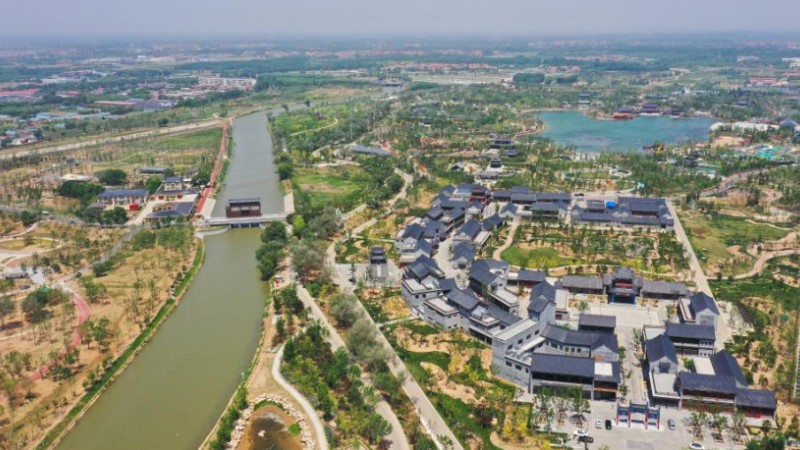Lancaster University hosts 3rd interdisciplinary conference on Belt & Road Initiative
LANCASTER, Britain, May 25 (Xinhua) -- The third Interdisciplinary Conference on the Belt and Road Initiative (BRI) was held by Britain's Lancaster University here from Wednesday to Friday.
The conference, hosted by the Lancaster University Belt and Road Initiative Research Consortium (LUBRIC), featured individual speeches and panel discussions, during which academic experts focused on the initiative's development over the past decade in many parts of the world. Other related topics are finance, investment, technology, environment and international relations.
Yang Zhiyu, China's deputy consul general in Manchester, United Kingdom, told Xinhua that this is the third time that the LUBRIC has held an interdisciplinary conference on the initiative, which shows the influence of the initiative in Britain.
Compared with the previous two conferences, the number of participants has increased, and so has the number of countries from which they come, demonstrating the vitality of the initiative after a decade of development, Yang said.
When assessing the prospects of the initiative, Andy Schofield, vice chancellor of Lancaster University, told Xinhua that all nations can do to help to mitigate the impact of climate change and to reduce any further deterioration in the climate should be done in collaboration and cooperation between countries.
"The BRI therefore should be an important part of the world's resilience to that uncertain future we face," professor Schofield said.
Professor Zeng Jinghan, head of the LUBRIC, told Xinhua that "the BRI is quite resilient, especially in the past three years."
According to his observation, before the COVID-19 pandemic, the BRI focused on promoting physical connectivity. In the wake of COVID-19, the initiative has quickly shifted its emphasis to developing the "Digital Silk Road" and promoting virtual and digital connectivity.
Liu Hong, associate vice president of Singapore's Nanyang Technological University, told Xinhua that the initiative impressed him most is the infrastructure construction in the Global South. There are still a large percentage of population in Africa, Southeast Asia and Central Asia that have been in lack of infrastructure such as power, roads and so on.
"By investing heavily in infrastructure projects in these regions, the BRI has significantly contributed to local economic development and also the improvement of a livelihood for people in those regions and countries," said professor Liu.
Photos
Related Stories
Copyright © 2023 People's Daily Online. All Rights Reserved.









